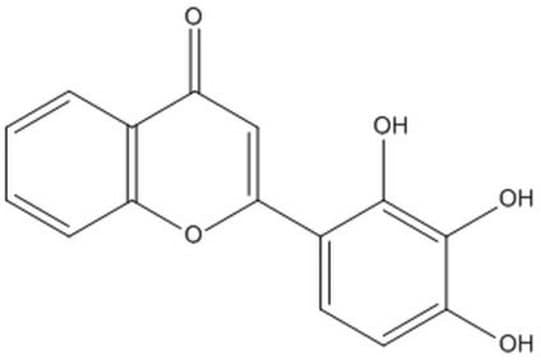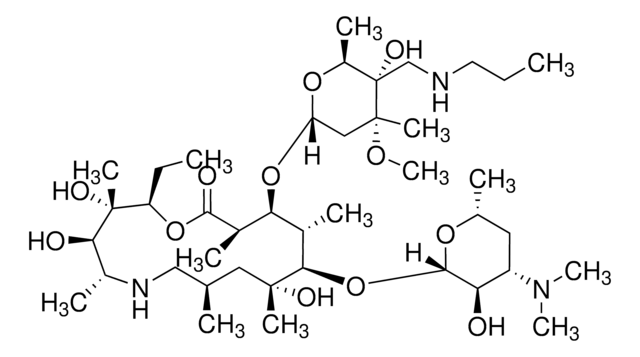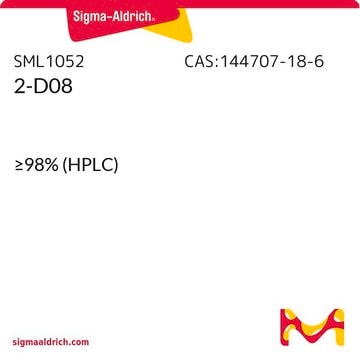75741
Ginkgolic acid C15:1
analytical standard
Sinónimos:
6-[(8Z)-Pentadecenyl]-salicylic acid, Ginkgolic acid I
About This Item
Productos recomendados
grade
analytical standard
Quality Level
assay
≥80% (HPLC)
shelf life
limited shelf life, expiry date on the label
technique(s)
HPLC: suitable
gas chromatography (GC): suitable
application(s)
food and beverages
format
neat
storage temp.
2-8°C
SMILES string
CCCCCC\C=C/CCCCCCCc1cccc(O)c1C(O)=O
InChI
1S/C22H34O3/c1-2-3-4-5-6-7-8-9-10-11-12-13-14-16-19-17-15-18-20(23)21(19)22(24)25/h7-8,15,17-18,23H,2-6,9-14,16H2,1H3,(H,24,25)/b8-7-
InChI key
YXHVCZZLWZYHSA-FPLPWBNLSA-N
¿Está buscando productos similares? Visita Guía de comparación de productos
General description
Application
Ginkgolic acid C15:1 may be used as an analytical reference standard for the quantification of the analyte in Ginkgo biloba plant extracts, and dietary supplements using chromatography techniques.
signalword
Warning
hcodes
Hazard Classifications
Aquatic Chronic 4 - Skin Sens. 1
Storage Class
11 - Combustible Solids
wgk_germany
WGK 3
flash_point_f
509.9 °F - (calculated)
flash_point_c
265.5 °C - (calculated)
ppe
dust mask type N95 (US), Eyeshields, Gloves
Elija entre una de las versiones más recientes:
¿Ya tiene este producto?
Encuentre la documentación para los productos que ha comprado recientemente en la Biblioteca de documentos.
Los clientes también vieron
Nuestro equipo de científicos tiene experiencia en todas las áreas de investigación: Ciencias de la vida, Ciencia de los materiales, Síntesis química, Cromatografía, Analítica y muchas otras.
Póngase en contacto con el Servicio técnico












